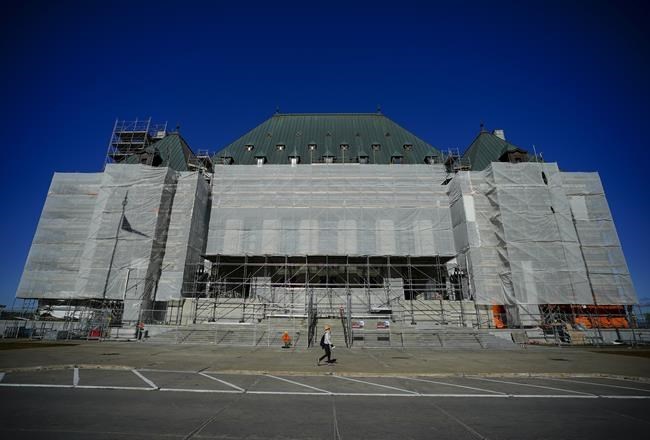OTTAWA — Several people arrested for drug-related offences must face a new trial because a judge improperly stayed the charges against them, the Supreme Court of Canada has ruled.
The top court's judgment, released Friday, also means the accused individuals will have a fresh opportunity to argue the charges should be set aside, in keeping with guidance set out by the court.
Eight years ago, more than two dozen people in various parts of Quebec were arrested and charged with offences related to the trafficking of narcotics, mainly cannabis.
The arrests took place in several locations and the accused were divided into four groups for separate hearings.
Individuals in the first group brought a motion for a stay of proceedings, alleging infringements concerning police searches and their rights to counsel.
In 2018, the Quebec Superior Court trial judge granted a stay, and the parties subsequently agreed the decision would apply to the accused people in the other three groups. As a result, the judge stayed the proceedings against those individuals as well.
The Quebec Court of Appeal set aside the decisions and ordered a new trial, including a fresh hearing on the motion for a stay. The accused individuals then took their case to the Supreme Court.
Writing for a majority of the court, Justice Michelle O'Bonsawin noted that two types of state conduct meet the threshold for establishing abuse of process.
One is conduct that compromises trial fairness. The other is a second category of conduct that, without necessarily threatening the fairness of the accused person's trial, nevertheless undermines the integrity of the justice system.
O'Bonsawin concluded that all of the accused had standing to apply for a stay of proceedings, even though some of them were not the victims of alleged infringements resulting in a breach of trial fairness or abuse of process.
However, she wrote, the Superior Court trial judge had the task of determining whether each individual's right to retain and instruct counsel without delay had been infringed and the judge had failed to do so.
She said that determination had to be made in order to ultimately decide whether the infringements as a whole met the threshold for abuse of process in the second category of conduct.
Finally, O'Bonsawin found the Superior Court also erred in entering a stay of proceedings for all of the accused individuals without first considering less drastic remedies that could have addressed the perceived prejudice to the integrity of the justice system.
These errors justify holding a new trial, including fresh hearings on the motions for a stay of proceedings, she wrote.
This report by The Canadian Press was first published Jan. 26, 2024.
Jim Bronskill, The Canadian Press




